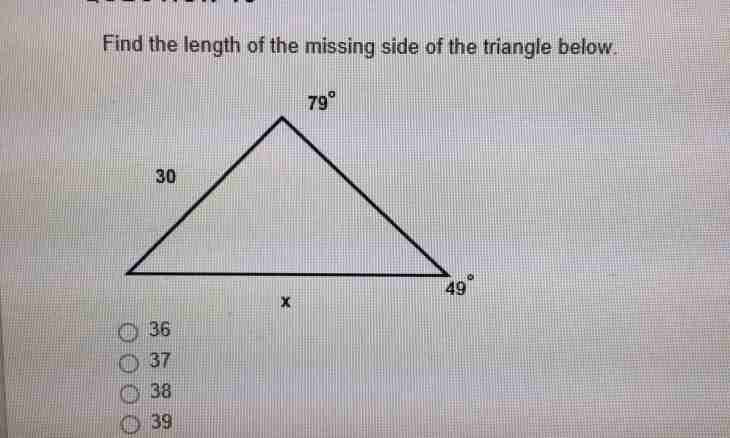Number b is called a divider of integer a if there is such integer q that bq = a. Usually the divisibility of natural numbers is considered. Divisible a will be called multiple numbers b. Search of all dividers of number is carried out by certain rules.
It is required to you
- Criteria for divisibility
Instruction
1. For a start we will make sure that any natural number, bigger units, has at least two dividers - unit and itself. Really, a: 1 = a, a: a = 1. The numbers having only two dividers are called prime. The only divider of unit is, obviously, unit. That is unit is not a prime number (and is not compound as we will see further).
2. The numbers having more than two dividers are called composite. What numbers can be composite? As even numbers are divided into 2 totally, all even numbers, except number 2, will be composite. Really, at division 2:2 two are divided into itself, that is has only two dividers (1 and 2) and is a prime number.
3. Let's look whether is at even number still kaki-or dividers. Let's divide it at first into 2. From commutativity of operation of multiplication it is obvious what turned out private also will be a number divider. Then, if turned out private is whole, we will divide into 2 already this private again. Then the new private y which turned out as a result = (x: 2): 2 = x: 4 will be a divider of initial number too. Similarly, and 4 will be a divider of initial number.
4. Continuing this chain, we will generalize the rule: consistently we divide at first even number and then turned out private on 2 until any private does not become equally odd number. At the same time all turned out private will be dividers of this number. Besides numbers 2^k where k = 1...n where n is number of steps of this chain will be dividers of this number also. Example: 24:2 = 12, 12:2 = 6, 6:2 = 3 - odd number. Therefore, 12, 6 and 3 - number 24 dividers. In this chain 3 steps, therefore, dividers of number 24 will be also numbers 2^1 = 2 (it is already known from parity of number 24), 2^2 = 4 and 2^3 = 8. Thus, numbers 1, 2, 3, 4, 6, 8, 12 and 24 will be number 24 dividers.
5. However not for all even numbers this scheme can give all dividers of number. Let's consider, for example, number 42. 42:2 = 21. However, as we know, numbers 3, 6 and 7 will also be number 42 dividers. There are criteria for divisibility by certain numbers. Let's consider the most important of them: A criterion for divisibility on 3: when the sum of figures of number is divided into 3 without the rest. A criterion for divisibility on 5: when last figure of number 5 or 0. A criterion for divisibility on 7: when the result of subtraction of the doubled last figure from this number without the last figure is divided into 7. A criterion for divisibility on 9: when the sum of figures of number is divided into 9 without the rest. A criterion for divisibility on 11: when the sum of the figures taking odd places or is equal to the sum of the figures taking even places or differs from it on the number which is divided into 11. There are also criteria for divisibility by 13, 17, 19, 23 and other numbers.
6. Both for even, and for odd numbers it is necessary to use signs of division into any given number. Having divided number, it is necessary to define dividers turned out private and. etc. (the chain is similar chains of even numbers at their division into 2, described above).

